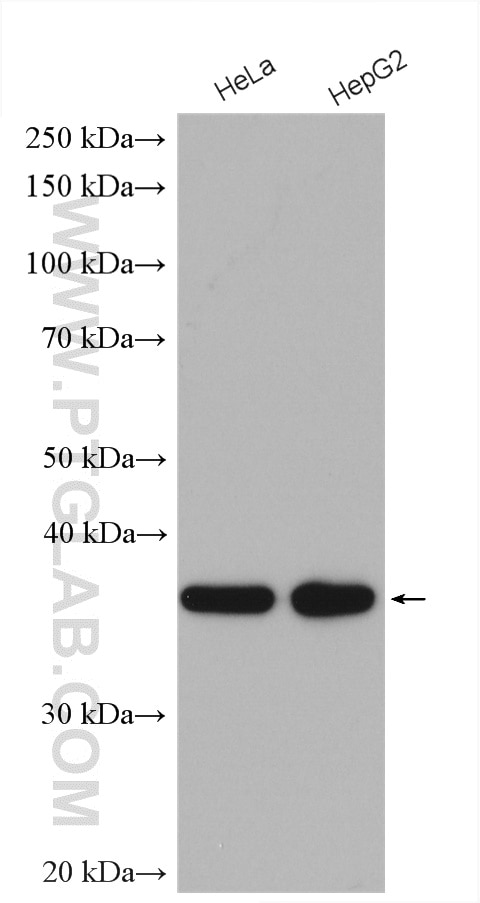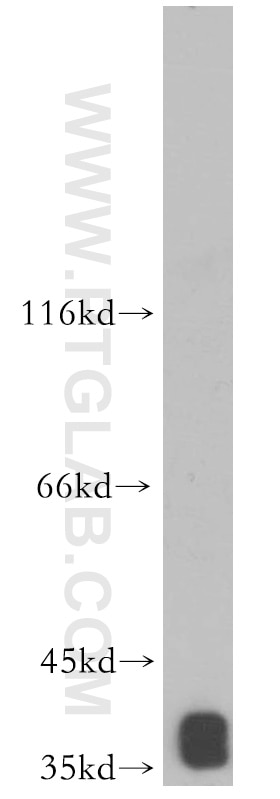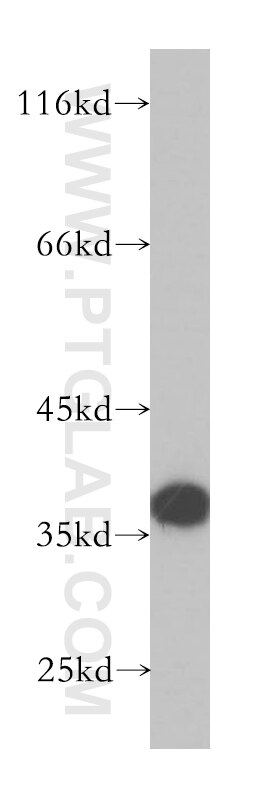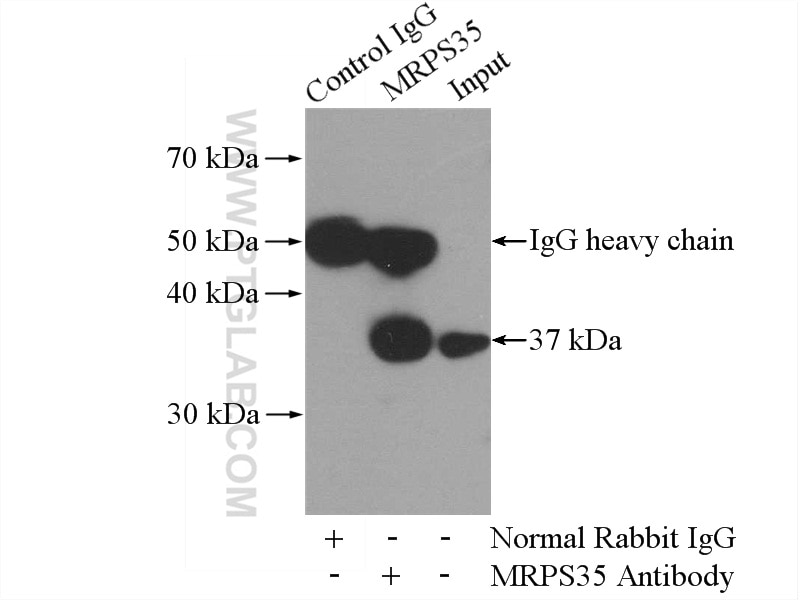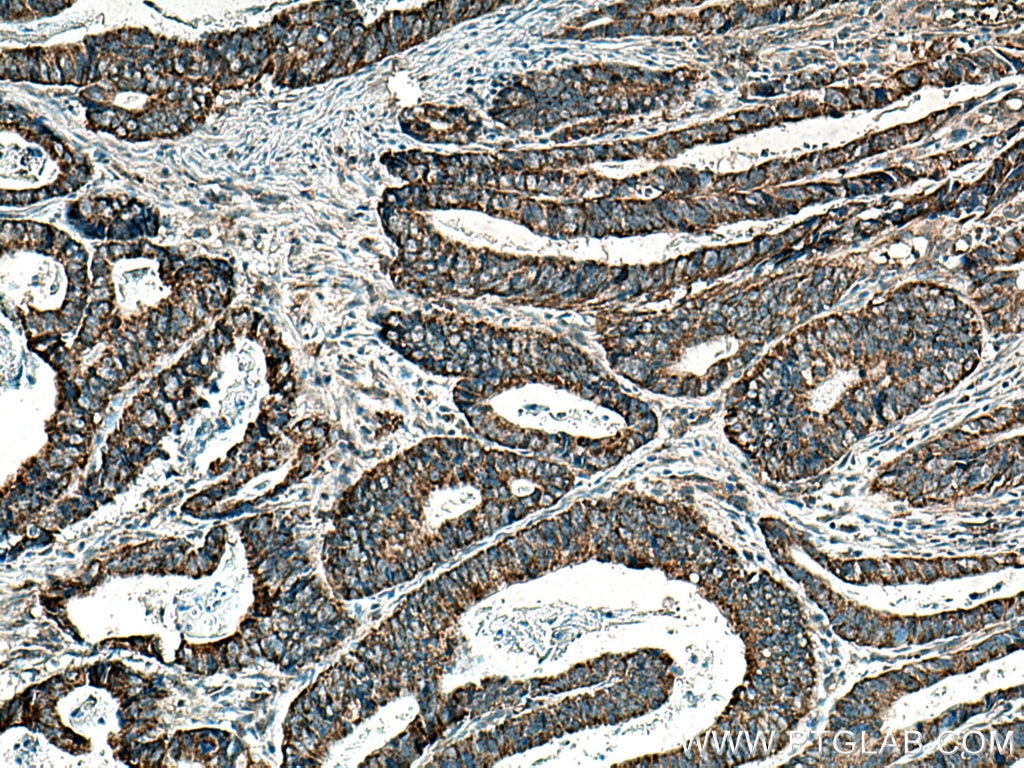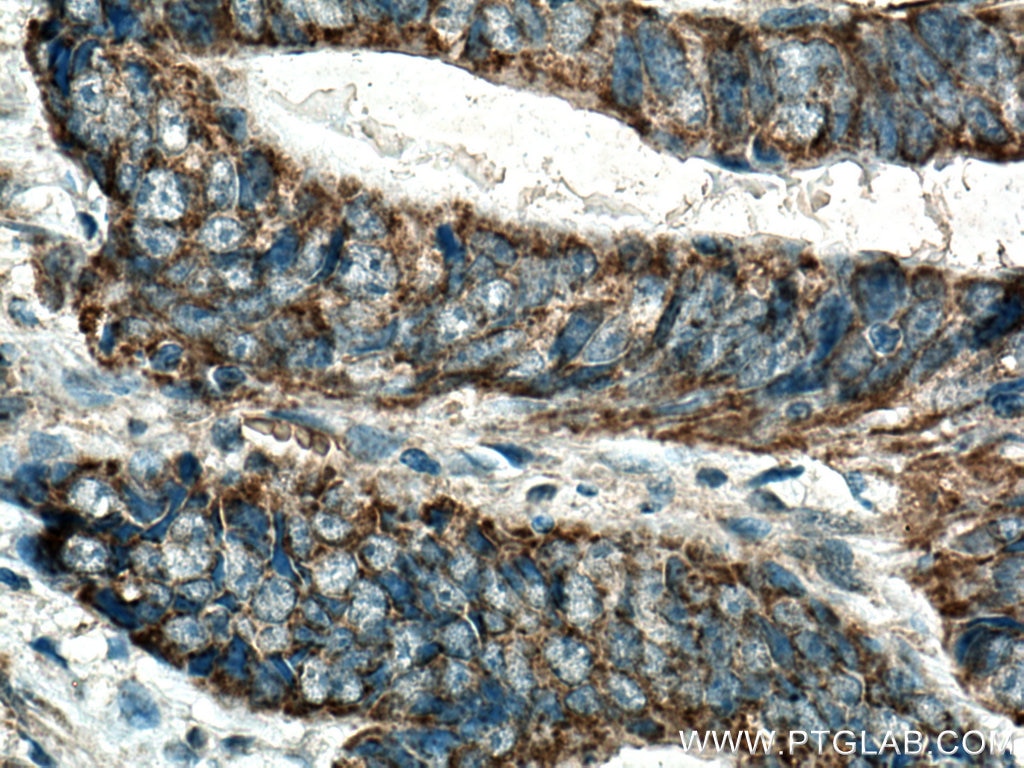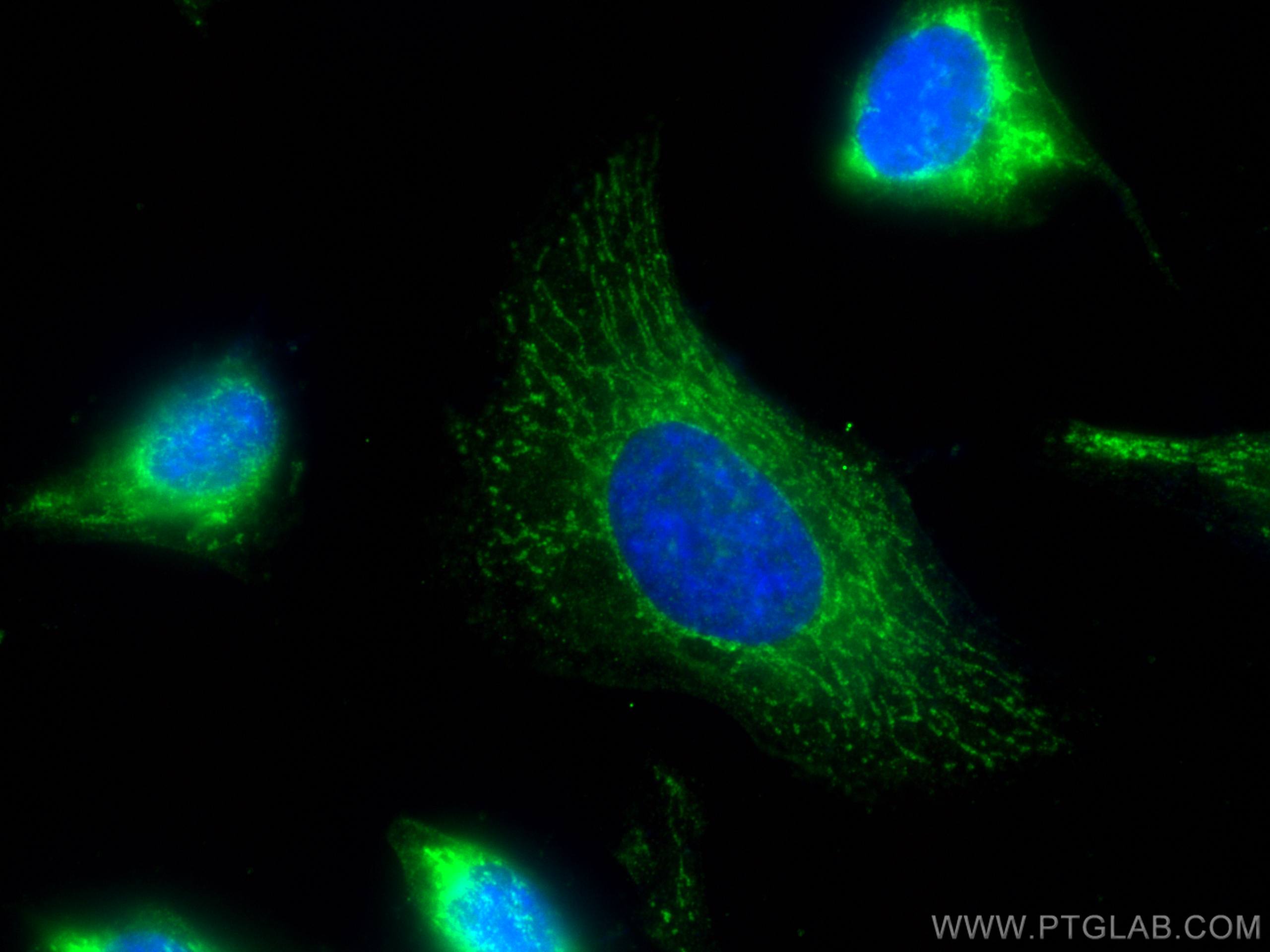Anticorps Polyclonal de lapin anti-MRPS35
MRPS35 Polyclonal Antibody for WB, IHC, IF/ICC, IP, ELISA
Hôte / Isotype
Lapin / IgG
Réactivité testée
Humain, rat, souris
Applications
WB, IHC, IF/ICC, IP, ELISA
Conjugaison
Non conjugué
N° de cat : 16457-1-AP
Synonymes
Galerie de données de validation
Applications testées
| Résultats positifs en WB | cellules HeLa, cellules HepG2, tissu cardiaque humain |
| Résultats positifs en IP | cellules HeLa |
| Résultats positifs en IHC | tissu de cancer du côlon humain, il est suggéré de démasquer l'antigène avec un tampon de TE buffer pH 9.0; (*) À défaut, 'le démasquage de l'antigène peut être 'effectué avec un tampon citrate pH 6,0. |
| Résultats positifs en IF/ICC | cellules HeLa, |
Dilution recommandée
| Application | Dilution |
|---|---|
| Western Blot (WB) | WB : 1:2000-1:10000 |
| Immunoprécipitation (IP) | IP : 0.5-4.0 ug for 1.0-3.0 mg of total protein lysate |
| Immunohistochimie (IHC) | IHC : 1:50-1:500 |
| Immunofluorescence (IF)/ICC | IF/ICC : 1:50-1:500 |
| It is recommended that this reagent should be titrated in each testing system to obtain optimal results. | |
| Sample-dependent, check data in validation data gallery | |
Applications publiées
| WB | See 31 publications below |
| IP | See 1 publications below |
Informations sur le produit
16457-1-AP cible MRPS35 dans les applications de WB, IHC, IF/ICC, IP, ELISA et montre une réactivité avec des échantillons Humain, rat, souris
| Réactivité | Humain, rat, souris |
| Réactivité citée | Humain, souris |
| Hôte / Isotype | Lapin / IgG |
| Clonalité | Polyclonal |
| Type | Anticorps |
| Immunogène | MRPS35 Protéine recombinante Ag9430 |
| Nom complet | mitochondrial ribosomal protein S35 |
| Masse moléculaire calculée | 323 aa, 37 kDa |
| Poids moléculaire observé | 37 kDa |
| Numéro d’acquisition GenBank | BC015862 |
| Symbole du gène | MRPS35 |
| Identification du gène (NCBI) | 60488 |
| Conjugaison | Non conjugué |
| Forme | Liquide |
| Méthode de purification | Purification par affinité contre l'antigène |
| Tampon de stockage | PBS with 0.02% sodium azide and 50% glycerol |
| Conditions de stockage | Stocker à -20°C. Stable pendant un an après l'expédition. L'aliquotage n'est pas nécessaire pour le stockage à -20oC Les 20ul contiennent 0,1% de BSA. |
Informations générales
Mammalian mitochondrial ribosomes (mitoribosomes) are responsible for protein synthesis within the mitochondrion. The mitoribosomes are composed of a 4:1 ratio of protein to RNA, with the proteins forming two subunits, the 28S subunit and the 39S subunit. Across species, the proteins that make up the mitoribosome subunits vary greatly in sequence, preventing easy recognition by sequence homology. MRPS35 (mitochondrial ribosomal protein S35), also known as MDS023, MRPS28 or HDCMD11P, is a 323 amino acid protein that localizes to the mitochondrion, where it exists as a component of the 28S ribosomal subunit and works in conjunction with other MRPs to mediate protein synthesis. Existing as two alternatively spliced isoforms, MRPS35 is encoded by a gene located on human chromosome 10, which houses over 1,200 genes and comprises nearly 4.5% of the human genome. This antibody is a rabbit polyclonal antibody raised against the full length MRPS35 protein. It specifically reacts with the 37kd MRPS35protein.
Protocole
| Product Specific Protocols | |
|---|---|
| WB protocol for MRPS35 antibody 16457-1-AP | Download protocol |
| IHC protocol for MRPS35 antibody 16457-1-AP | Download protocol |
| IF protocol for MRPS35 antibody 16457-1-AP | Download protocol |
| IP protocol for MRPS35 antibody 16457-1-AP | Download protocol |
| Standard Protocols | |
|---|---|
| Click here to view our Standard Protocols |
Publications
| Species | Application | Title |
|---|---|---|
Cell Metab Integrative genetic analysis identifies FLVCR1 as a plasma-membrane choline transporter in mammals | ||
Sci Adv Fidelity of translation initiation is required for coordinated respiratory complex assembly. | ||
Cell Metab Tissue-Specific Loss of DARS2 Activates Stress Responses Independently of Respiratory Chain Deficiency in the Heart. | ||
J Clin Invest AFG3L2 supports mitochondrial protein synthesis and Purkinje cell survival. | ||
Nat Commun Loss of the RNA-binding protein TACO1 causes late-onset mitochondrial dysfunction in mice. |
